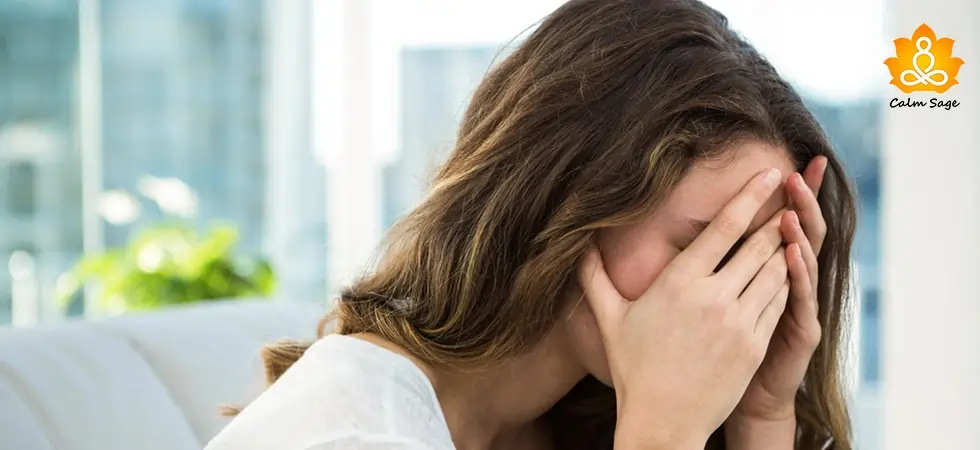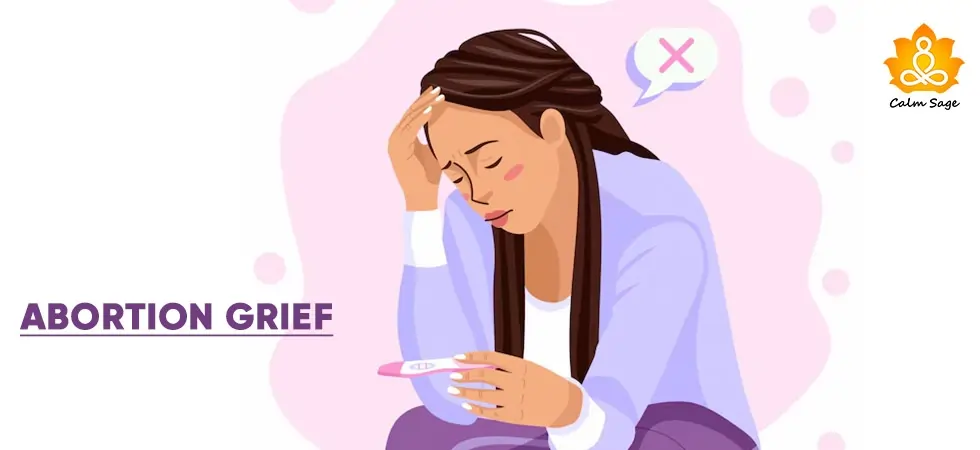Hormonal Depression: What You Need to Know
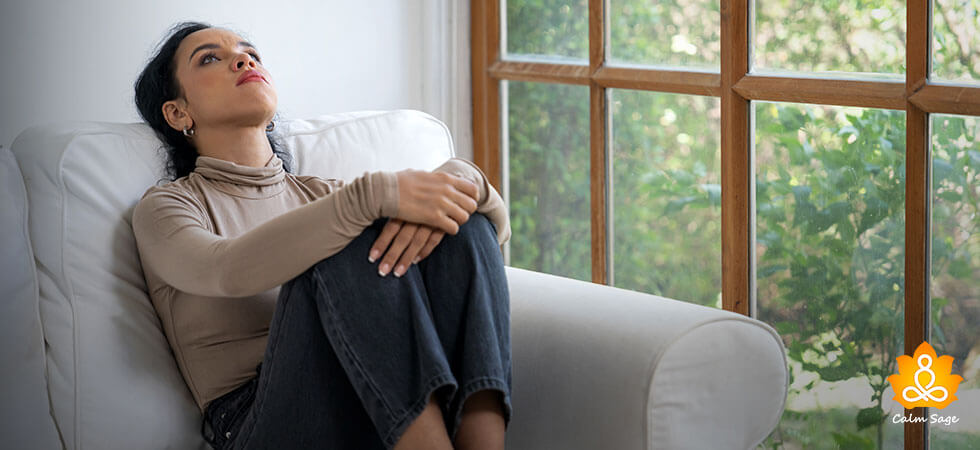
Hormones are the chemical messengers that run through our bodies and play an important role in regulating our body functions – from metabolism to sleep. They also have a powerful influence on our emotions and mood. When hormonal imbalances happen, our hormones can impact our mood and mental well-being, sometimes leading to a specific type of depression, called hormonal depression.
In this article, we’re looking at what hormonal depression is, what causes it, what hormonal depression in females and males looks like, and how you can treat and cope with it.
Key Takeaways:
- Hormonal imbalance can impact mood regulation and cause depression in males and females.
- Various factors can contribute to hormonal depression including PMDD, pregnancy, PCOS, thyroid, menopause, and low testosterone levels.
- Hormonal depression treatment can involve hormone therapy, antidepressants, psychotherapy approaches, and major lifestyle changes.
- Practicing stress management techniques such as meditation, yoga, relaxation exercises, and more can also help cope with hormonal depression.
The Link Between Hormones And Depression
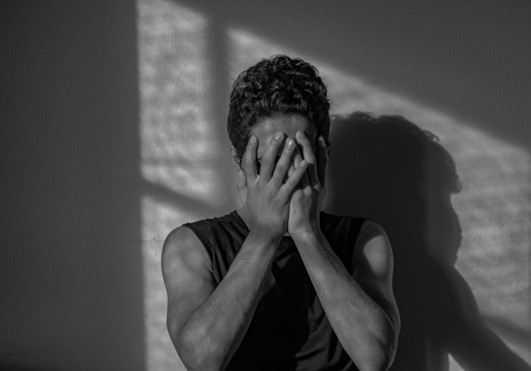
Hormones are like neurotransmitters that influence our mood and regulation. When you experience changes or fluctuations in hormonal levels, then it can trigger or even worsen depression. Low serotonin and low dopamine levels can also contribute to feelings of apathy and anhedonia – the loss of pleasurable activities.
Moreover, estrogen and progesterone, the sex hormones, can also influence mood, especially in females. Hormones and depression in females are a key point of study. Fluctuations in hormones during the menstrual cycle, pregnancy, and menopause can trigger depressive episodes and worsen depressive symptoms.
In men, testosterone is what affects mood, energy levels, and libido. Low levels of testosterone can cause low mood and motivation, leading to depressive symptoms.
Stress is another key contributor to depression. Cortisol, the stress hormone, is released when you face stressful situations. If your cortisol levels are chronically elevated, then it can disrupt your sleep patterns and cause anxiety and depression.
Whether due to natural imbalances or underlying conditions, hormones can disrupt neurochemicals in your brain, leading to and contributing to symptoms of depression.
Hormonal Depression In Men
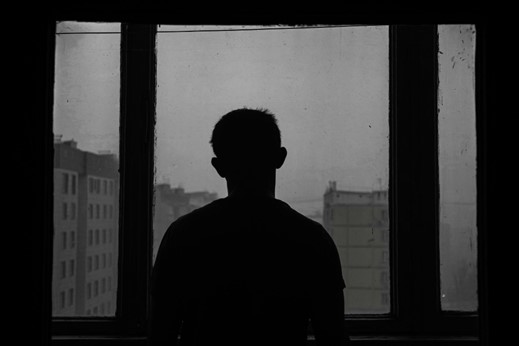
While hormonal changes and depression in females are more pronounced and discussed, men can also suffer from hormonal depression. Men experience hormonal fluctuations that can impact their mental health, especially where testosterone levels are concerned.
Testosterone in men naturally declines with age, and such drops in testosterone levels can lead to symptoms often associated with depression such as low mood, irritability, fatigue, and lower libido. In men, hormonal depression can be referred to as andropause or male menopause. It might be less recognized, but it’s equally impactful as hormonal depression in females.
Along with aging, men can also develop hypogonadism, a condition where the body doesn’t produce enough testosterone. Higher levels of stress, sedentary lifestyle, and medical treatments can disrupt hormonal balance and lead to depression in men.
What Causes Hormonal Depression?
Several factors are known to trigger hormonal fluctuations that can, then, lead to depression. What are these factors? Let’s take a quick look at them;
In Women –
- Menstrual Cycle: The hormonal imbalances that happen during the menstrual cycle can cause premenstrual dysphoric disorder or PMDD, a form of PMS that includes depressive symptoms as well.
- Pregnancy: While pregnant females are more vulnerable to mood swings, hormonal changes can still occur during such conditions. Hormonal fluctuations in pregnancy can trigger prenatal depression, and post-pregnancy, these fluctuations can trigger postpartum depression.
- Postpartum Depression: The drop in estrogen and progesterone levels after childbirth can contribute to postpartum depression. Did you know that every 1 in 9 women experience severe signs of postpartum depression?
- Perimenopause and Menopause: Menopause in women occurs somewhere between 40–50 years of age. The years leading up to menopause are what we call perimenopause. Perimenopause and menopause itself can be marked by hormonal changes, which can cause depression or depressive symptoms in females.
- Polycystic Ovary Syndrome (PCOS): PCOS is another hormonal disorder that can cause irregular menstrual cycles, unexplained weight gain/loss, and severe mood swings. More often than not, PCOS can cause anxiety and depression disorders.
In Men –
- Low Testosterone: Low levels of testosterone in men can cause depression or worsen depressive symptoms if you’re already diagnosed with depression.
- Medical Issues: Certain medical conditions such as thyroid can also cause hormonal imbalances in males, causing mood swings and depression.
- Medications: If you’re using any medication or steroids to treat one condition or another, then these medications could also affect your mood and testosterone levels, contributing to depression and its symptoms.
Common Factors –
- Long-Term Stress: Chronic stress is another common factor between hormones and depression. If you’re highly stressed and living with stress continuously, then it can disrupt your well-being and cause depressive symptoms.
- Poor Lifestyle Choices: Poor diet and no exercise can also cause mood changes that can negatively affect your health and well-being, causing depression.
Hormonal Depression Symptoms to Know
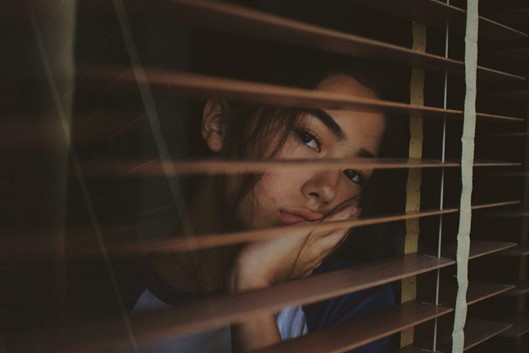
Hormonal depression symptoms can vary depending on the type of hormonal imbalance you’re facing. Some common signs and symptoms of hormonal depression can include;
- Persistent feelings of sadness and low mood
- Experiencing irritability and mood swings
- Feeling anxious and nervous all the time
- Experiencing feelings of hopelessness and worthlessness
- Experiencing fatigue
- Changes in appetite and weight
- Not getting enough sleep or sleeping too much
- Difficulty concentrating or making smart decisions
- Having poor memory
- Unable to think clearly or react properly to stimuli
- Feeling withdrawn from social situations
- Having little to no interest in once-enjoyable activities
- Increased use of substances such as alcohol and drugs
These symptoms can become more pronounced when you’re experiencing hormonal changes, especially during the menstrual cycle, pregnancy, postpartum, and menopause. Men, on the other hand, might experience these symptoms when they have low testosterone levels.
Treating Hormonal Depression:

The treatment of depression when hormones are considered can be multifaceted. These approaches address hormonal imbalances and depression symptoms that come with them. Some common treatment approaches can involve;
- Hormone Therapy
Hormone therapy includes approaches such as hormone replacement therapy, thyroid treatment, and testosterone treatment. This therapy approach can be used to treat symptoms related to menopause, thyroid, and low testosterone.
These treatment techniques can work to right the hormonal imbalances, thus addressing depressive symptoms, too.
- Medications
Certain medications such as antidepressants and mood stabilizers to manage mood swings that come with hormonal depression. These medications must be prescribed by a registered physician, as some might have side effects that can worsen hormonal imbalances and depression symptoms.
- Lifestyle Changes
Along with therapy and medications, you can also make certain changes in your lifestyle to manage hormonal depression symptoms, naturally. You can start by eating a balanced diet to cater to your hormonal imbalance, exercising regularly to regulate your mood, and engaging in stress management techniques such as mindfulness, yoga, and meditation to lower stress.
- Psychotherapy
Psychotherapy techniques and approaches such as cognitive behavioral therapy (CBT) and interpersonal therapy for depression (IPT) can be used to address the symptoms of depression such as negative thinking and unhealthy behaviors.
These therapy approaches can also help work on your relationships and communication skills, all good for anyone experiencing hormonal depression.
- Alternative Therapy Techniques
Various studies also suggest the use of alternative therapies in treating hormonal depression. Alternative therapy techniques such as acupressure and herbal supplements can be used.
However, it is strongly recommended that you speak to a professional before using these alternative therapies, as some might even work unfavorably when it comes to hormones and depression.
Additional Coping Tips…
Other than professional treatment, you can engage in coping strategies to treat hormonal depression. Here are some coping tips to help you cope with imbalances in hormones and depression;
- Find a Routine and Follow
Having a routine that you can follow consistently can help stabilize your hormone levels, thus improving your mood and reducing unnecessary stress.
With a routine, your body will learn to follow a schedule that suits your needs.
- Live an Active Lifestyle
Change your lifestyle from sedentary to active. Engage in regular physical activity, even if it’s just walking for a few minutes every day.
Exercising can release endorphins, your body’s natural painkillers, and one of the happy hormones. More endorphins release means better mood regulation and lower depression risk.
- Sleep Well Each Night
When I say sleep well, I mean to focus not just on the hours of sleep you get each night, but also the kind of sleep you get, aka quality sleep. Keep a nightly routine that you follow each night.
This can help you get restful sleep and reset your sleep-wake cycle – another element that can be disrupted by hormonal imbalances. Make sure your bedroom is in an optimal sleep environment for quality sleep. Aim for at least 7–8 hours of sleep every night.
- Find a Support System
We all need support when it comes to maintaining healthy mental space. Join a support group or a community where you can stay connected with people with similar goals.
Having support as you cope with hormonal depression can help a lot.
- Take Care of Yourself
In my previous articles, I’ve talked about the importance of self-care, and I stand by it. When you take care of yourself, you take care of your mental well-being.
Take time for activities you enjoy and that help you relax. You can try reading, finding a new hobby, or spending time outdoors.
- Know Your Symptoms
To cope with hormonal depression, you need to know what you’re fighting against. Keep track of your symptoms to know your triggers and how to avoid them. You can also share them with your therapist, who can help you come up with healthy coping strategies to cope with them.
If you know what to cope with, you’ll find yourself becoming more active in the treatment and its management.
- Seek Professional Help
You need to understand that it’s OK to find a professional who knows the ins and outs of hormonal depression. Seek immediate professional support, if you’re experiencing these symptoms for more than two weeks;
- Constant feelings of hopelessness
- Severe mood swings
- Significant changes in weight and appetite patterns, and
- Thoughts of suicide or self-harm
Getting help early can prevent further harm to your mind and health. A professional can help diagnose your condition with appropriate evaluations and recommend the right treatment options to treat hormonal depression.
Resources For Help…
If you’re experiencing symptoms of severe depression, reach out for help. Here are some resources that you can reach out to for help and support;
- National Suicide Prevention Lifeline: 988
- Crisis Text Line: Text HOME to 741741
- National Alliance on Mental Illness (NAMI)
- SAMHSA
If you or your loved one is in immediate need of help, then you can contact your nearest emergency hotline or find a therapist or counselor near you.
Wrapping Up…
Hormonal depression is a complex but real condition that can have a long-term impact on mental health and well-being. You need to remember that you’re not alone in your fight. With the right help, diagnosis, and treatment, you can learn to manage hormones and depression symptoms.
I hope the above-mentioned coping strategies will help you cope with hormonal imbalances and symptoms of depression if you’re experiencing them.
Please know that the idea of a happy, healthy, and fulfilling life is right around the corner. You just have to fight enough to get there!
Let me know what you think about hormonal depression in the comments section below. I look forward to your replies!
Take Care!






